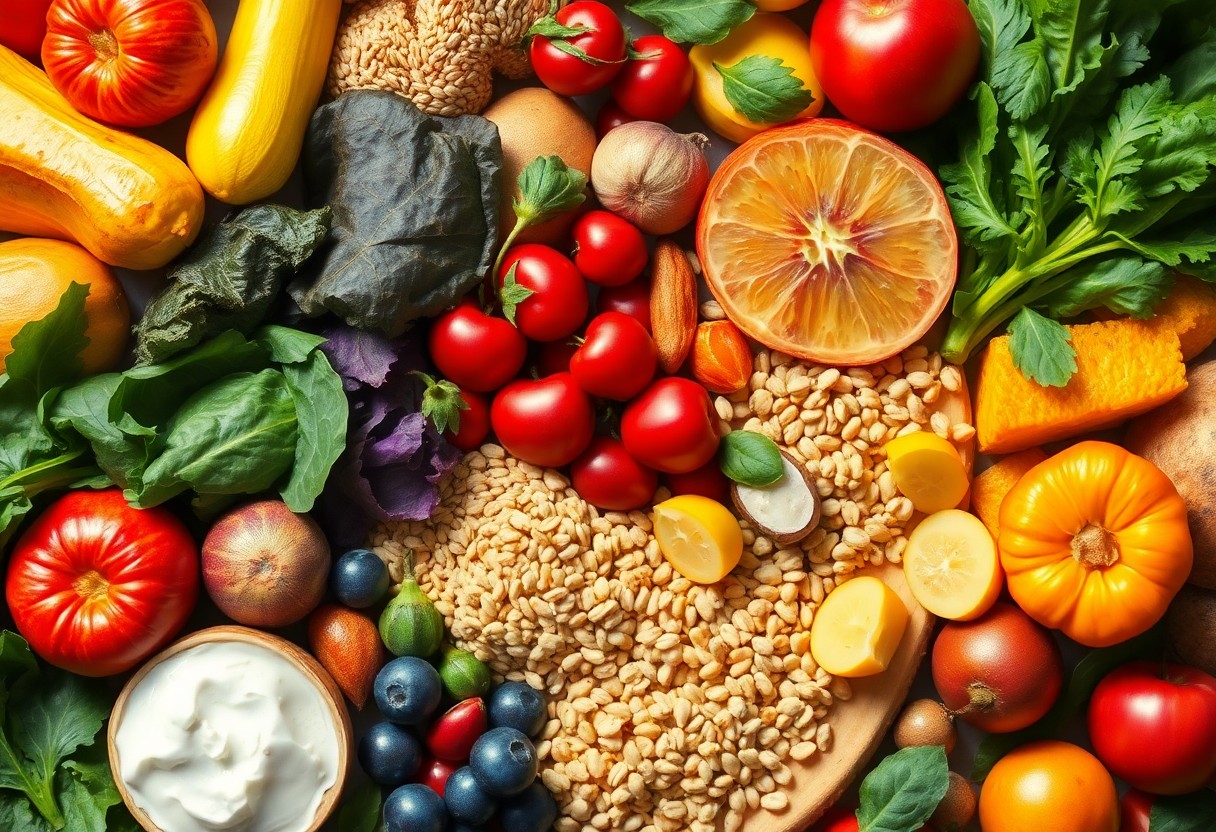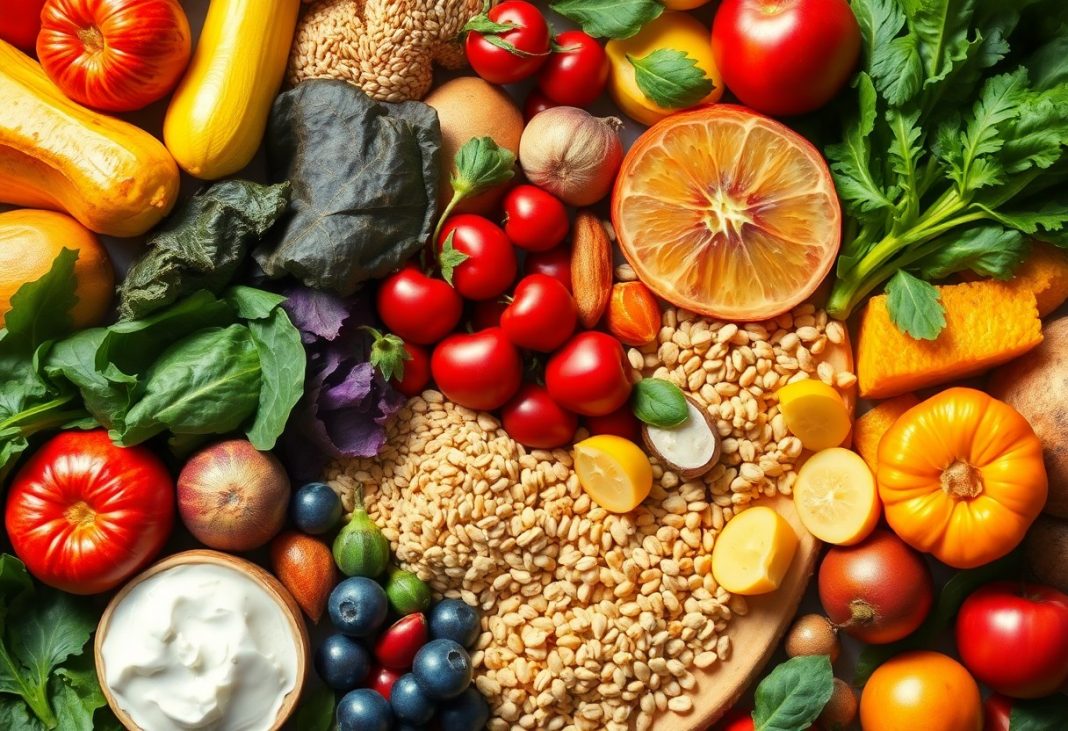Many people are choosing plant-based living to enhance their health and support the environment. In this detailed guide, you will learn exactly what to include in your diet to ensure balanced nutrition and which foods to avoid to maintain your well-being. By understanding the crucials of plant-based eating, you can confidently make informed decisions that align with your lifestyle and goals.
Key Takeaways:
- Emphasizes a variety of whole plant foods such as fruits, vegetables, legumes, nuts, seeds, and whole grains for balanced nutrition.
- Advises limiting or avoiding animal products, processed foods, refined sugars, and excessive oils to maintain a healthy plant-based diet.
- Highlights the importance of planning meals to ensure adequate intake of vital nutrients like protein, vitamin B12, iron, and omega-3 fatty acids.
Understanding Plant-Based Living
For those exploring a plant-based lifestyle, it’s necessary to grasp what it truly entails. Plant-based living focuses on consuming foods primarily derived from plants, including vegetables, fruits, grains, nuts, and legumes, while limiting or excluding animal products. This approach encourages you to make conscious, nutritional choices that support sustainability and well-being. Understanding the basics helps you navigate your dietary decisions with confidence and purpose.
Definition and Principles
Behind the concept of plant-based living is a commitment to embracing whole, minimally processed plant foods. It prioritizes nutrient-dense options and emphasizes variety to ensure balanced nutrition. You focus on plants as the foundation of your meals, shifting away from animal-based ingredients and processed foods. This approach is guided by principles of health, environmental awareness, and ethical considerations.
Health Benefits of a Plant-Based Diet
Benefits of adopting a plant-based diet include improved heart health, better weight management, and enhanced digestion, thanks to higher fiber intake. You may also experience lower risks of chronic diseases like diabetes and certain cancers. By fueling your body with a diverse range of plant foods, you can enjoy increased energy and overall wellness that supports your long-term health goals.
And beyond disease prevention, a plant-based diet can improve your gut microbiome by encouraging good bacteria growth. This often leads to reduced inflammation and strengthened immunity. As you explore plant-based eating, you’ll find it supports mental clarity and mood stability, offering a holistic approach to a healthier lifestyle.
Foods to Include
Assuming you want to embrace a plant-based lifestyle effectively, focusing on nutrient-dense, whole foods is key. Emphasize a diverse range of natural plant foods that provide crucial vitamins, minerals, and fiber. This approach not only supports your health but also keeps your meals interesting and satisfying by including a variety of textures and flavors.
Fruits and Vegetables
About incorporating fruits and vegetables, you should prioritize fresh, seasonal options to maximize nutrient intake. These colorful foods are rich in antioxidants and phytochemicals, which support your immune system and overall wellness. Aim to fill half your plate with a vibrant mix of fruits and veggies every day for optimal health benefits.
Whole Grains and Legumes
Above all, whole grains and legumes serve as excellent sources of complex carbohydrates and plant-based protein. Including foods like quinoa, brown rice, lentils, and chickpeas in your diet will provide sustained energy and improve digestive health thanks to their high fiber content.
In addition to their nutritional benefits, whole grains and legumes offer versatility in cooking. You can use them in salads, soups, stews, or as main dishes, allowing you to tailor meals to your taste preferences while ensuring balanced nutrition.
Nuts and Seeds
Grains alone can’t provide all necessary fats, so including a variety of nuts and seeds is important for healthy fat intake. These foods supply crucial omega-3 and omega-6 fatty acids, along with protein and minerals that support heart health and brain function.
Understanding the role of nuts and seeds helps you incorporate them thoughtfully into your meals. Whether as snacks, toppings, or blended into sauces, their nutrient density enhances your overall dietary quality and helps maintain energy levels throughout the day.

Foods to Avoid
Once again, embracing a plant-based lifestyle means you’ll need to be mindful of what you exclude from your diet. Avoiding certain foods not only supports your health goals but also aligns with ethical and environmental considerations. It’s important to steer clear of animal-derived products, heavily processed items, and artificial additives that can undermine the benefits of plant-based living. By knowing what to avoid, you empower yourself to make informed choices that keep your diet both clean and nourishing.
Animal-Based Products
Along with animal meats, you should avoid dairy, eggs, and seafood to maintain a strict plant-based regimen. These products contain animal-derived ingredients that conflict with plant-based principles. Focusing on plant-origin foods helps you reduce exposure to saturated fats and hormones often found in animal products. By eliminating these, you also support animal welfare and reduce your ecological footprint while improving your overall dietary quality.
Processed Foods and Additives
Among the many foods to avoid, processed items loaded with additives, preservatives, and artificial flavors can sabotage your plant-based efforts. These products often contain hidden animal derivatives or unhealthy chemicals that do not align with a wholesome, plant-centric diet. Being vigilant about ingredient lists helps you steer clear of these unnecessary additives and maintain the purity and nutrient density of your meals.
Foods labeled as “plant-based” aren’t always free from processing or additives. You should be cautious of foods high in refined sugars, hydrogenated oils, and synthetic additives that can negatively impact your health. Aim to consume whole, minimally processed ingredients and scrutinize packaged plant-based products for undesirable substances. Making this effort enhances your diet’s integrity, supports digestive health, and optimizes nutrient absorption, reinforcing your plant-based lifestyle effectively.
Meal Planning and Preparation
To successfully transition to plant-based living, you need effective meal planning and preparation strategies. Organizing your weekly meals helps ensure you enjoy a variety of nutritious foods without feeling overwhelmed. Planning ahead allows you to make thoughtful grocery lists, avoid last-minute unhealthy choices, and save time during busy days. By setting aside time for meal prep, you can cook in batches, store meals for convenience, and maintain a balanced plant-based diet consistently. Your efforts in planning and preparation will make your plant-based lifestyle more enjoyable and sustainable.
Creating Balanced Meals
Balanced meals combine a variety of plant-based protein sources, whole grains, healthy fats, and plenty of fruits and vegetables. Be sure to include legumes like lentils or chickpeas for protein, quinoa or brown rice for energy, nuts or seeds for healthy fats, and colorful vegetables for imperative vitamins and minerals. This balance supports optimal nutrition and keeps you feeling satisfied throughout the day. Aim to diversify your plate to cover all nutrient groups and make your meals both delicious and nourishing.
Tips for Cooking and Substitutions
Between experimenting with new ingredients and adapting familiar recipes, you’ll find cooking plant-based meals both fun and rewarding. Use whole-food alternatives to replace animal products, such as tofu, tempeh, or seitan for protein, and plant-based milk like almond or oat milk. Incorporate spices and herbs to enhance flavors naturally.
- Swap butter with olive or coconut oil
- Replace dairy cheese with vegan cheese options
- Use flax or chia seeds as egg substitutes
This approach maintains taste while keeping your meals plant-based and healthy.
Substitutions provide flexibility and creativity in your plant-based cooking, allowing you to tailor dishes to your taste preferences without compromising nutrition. Consider these options to enrich your meals:
- Replace cream with cashew cream made by blending soaked cashews
- Use nutritional yeast to add a cheesy, savory flavor
- Swap ground meat with finely chopped mushrooms or lentils
This technique expands your recipe possibilities and supports variety in your diet.
Navigating Social Situations
After adopting a plant-based lifestyle, you may find social situations challenging as you balance your dietary choices with communal events. Successfully navigating these moments requires preparation and confidence, so you can enjoy gatherings without compromising your principles. Understanding how to communicate your needs and identify suitable options helps you stay aligned with your goals while being respectful and engaged in social settings.
Eating Out on a Plant-Based Diet
Situations involving dining out can feel overwhelming, but you can manage them well by researching menus beforehand, identifying vegan-friendly restaurants, or calling ahead to ask about plant-based options. Don’t hesitate to customize dishes by requesting modifications like removing dairy or meat. This approach allows you to enjoy a variety of flavorful meals without compromising your plant-based principles.
Staying Committed in Social Settings
Plant-based living in social settings often tests your commitment, especially during family gatherings or celebrations where non-plant-based foods dominate. Developing strategies to politely decline offerings or bringing your own dishes empowers you to stay true to your diet. Engaging others in conversations about your lifestyle can also increase understanding and support, making these occasions more comfortable and enjoyable for you.
Further strengthening your commitment involves building a support network of friends or groups who share your dietary preferences. This network can offer encouragement and practical advice when social situations become challenging. Additionally, focusing on the positive impacts of your plant-based choices on your health and the environment can reinforce your motivation, helping you maintain your lifestyle confidently amid social pressures.
Challenges and Misconceptions
Not everyone finds transitioning to a plant-based lifestyle easy; you might face social pressures, limited restaurant options, or initial meal planning hurdles. Additionally, common misunderstandings about plant-based diets can discourage you. These challenges, though real, can be overcome with the right knowledge and support, helping you maintain a balanced and enjoyable approach to plant-based living.
Common Myths Debunked
Misconceptions about plant-based diets often include beliefs that you won’t get enough protein, that such diets are inherently expensive, or that they lack variety. In reality, you can obtain sufficient protein from legumes, nuts, and whole grains, and plant-based meals can be both diverse and budget-friendly when planned well.
Addressing Nutritional Concerns
The concern over missing important nutrients like vitamin B12, iron, or omega-3s is understandable when shifting to plant-based living. However, you can meet these nutritional needs through fortified foods, supplements, and diverse food choices that provide these nutrients effectively.
Hence, to effectively manage your nutritional intake on a plant-based diet, it’s important to include fortified plant milks, nutritional yeast, and consider supplements where necessary. You should also incorporate a variety of whole foods such as leafy greens, legumes, seeds, and nuts to ensure a balanced supply of all important vitamins and minerals, supporting your overall health and wellbeing.
Conclusion
From above, embracing plant-based living involves thoughtful choices about what to eat and what to avoid to nourish your body effectively. By focusing on a variety of whole grains, legumes, fruits, vegetables, nuts, and seeds, you provide yourself with vital nutrients while minimizing processed foods and animal products. This guide helps you make informed decisions that support your health, sustainable living, and overall well-being. As you adapt to this lifestyle, you’ll discover how plant-based eating can energize you and contribute positively to your environment.
Q: What are the main categories of foods to include in a plant-based diet?
A: A plant-based diet primarily focuses on whole, minimally processed foods derived from plants. This includes a variety of vegetables, fruits, whole grains such as quinoa and brown rice, legumes like beans and lentils, nuts, seeds, and plant-based oils. These foods provide necessary nutrients including fiber, vitamins, minerals, and antioxidants that support overall health. Emphasizing a colorful and diverse intake helps ensure a balanced nutrient profile.
Q: Which types of foods should be limited or avoided when following a plant-based lifestyle?
A: When adhering to a plant-based lifestyle, it is advisable to limit or avoid animal-derived products such as meat, dairy, eggs, and seafood. Additionally, highly processed foods high in added sugars, refined grains, and unhealthy fats should be minimized to maintain the nutritional benefits of the diet. Some processed plant-based alternatives may also contain additives and preservatives, so it is beneficial to choose whole-food options whenever possible.
Q: How can someone ensure they receive adequate protein and necessary nutrients on a plant-based diet?
A: To meet protein needs on a plant-based diet, incorporating a variety of protein-rich sources such as legumes, tofu, tempeh, seitan, nuts, and seeds is recommended. Complementing different plant proteins throughout the day helps provide all necessary amino acids. For nutrients like vitamin B12, iron, calcium, and omega-3 fatty acids, individuals may consider fortified foods or supplements as these can be less abundant in plant-based foods. Consulting with a healthcare professional or registered dietitian can help create a balanced plan that meets individual nutritional requirements.





